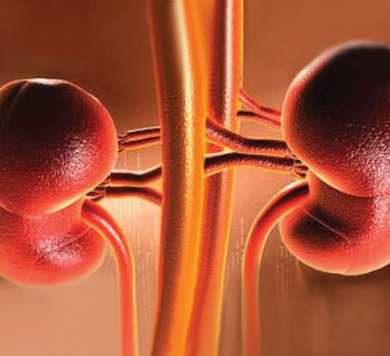
In patients with type 2 diabetes, long-term decreases in estimated glomerular filtration rate (eGFR) and increases in urine albumin-to-creatinine ratio (UACR) are associated with an increased risk of major clinical outcomes, according to new research.
These findings arose from a study of 8766 patients, with follow-up beginning upon patients’ second measurement of eGFR or UACR. Specifically, Min Jun, PhD, MScMed, MSc, BSc, of the University of New South Wales Sydney, and colleagues aimed to assess the relationship between changes in eGFR and UACR and subsequent risk of a combination endpoint of major cardiovascular and renal events and all-cause mortality in this cohort.
Hazard ratios (HRs) and 95% confidence intervals relating changes in eGFR and UACR to the combination endpoint were calculated using Cox regression models, which were adjusted for demographics, ADVANCE randomized treatment, and other factors.
From baseline to 2 years, 3% of patients had a decrease in eGFR of 40% of more, while 93% experienced a minor change, and 4% had an increase of 40% or more. Corresponding proportions for changes in UACR were 29%, 34%, and 37%, respectively. Approximately 1% of patients experienced both an eGFR decrease and UACR increase of more than 40%.
Subsequently, 2191 composite outcome events occurred over a median of 7.7 years, with strong linear associations observed between eGFR and UACR changes and subsequent outcome risk.
HRs were also calculated for:
Notably, patients who experienced both an eGFR decrease and UACR increase of 40% or more had a 2.31-fold higher risk for the outcome. Evidence of interaction was observed for both markers.
“In patients with [type 2 diabetes mellitus], clinically meaningful decreases in eGFR and increases in UACR over 2 years significantly predicted, independently and in combination, increased risk of major clinical outcomes,” the researchers wrote.
“Our results suggest that a combined assessment of clinically meaningful changes in both eGFR and UACR compared with separate assessments of the 2 markers may further improve risk stratification in [type 2 diabetes mellitus],” they concluded.
REFERENCE:
Jun M, Ohkuma T, Perkovic V, Chalmers JP, Woodward M; ADVANCE Collaborative Group. Combination of changes in eGFR and albuminuria and the risk of major clinical outcomes in type 2 diabetes mellitus (T2DM). Paper presented at: American Society of Nephrology Kidney Week 2018; October 23-28, 2018; San Diego, CA.